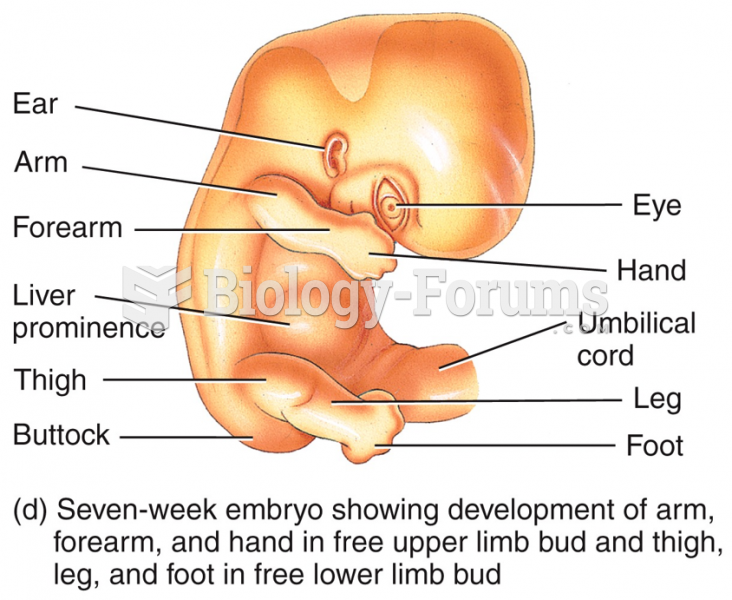|
|
|
More than 34,000 trademarked medication names and more than 10,000 generic medication names are in use in the United States.
The most common treatment options for addiction include psychotherapy, support groups, and individual counseling.
As many as 28% of hospitalized patients requiring mechanical ventilators to help them breathe (for more than 48 hours) will develop ventilator-associated pneumonia. Current therapy involves intravenous antibiotics, but new antibiotics that can be inhaled (and more directly treat the infection) are being developed.
The term pharmacology is derived from the Greek words pharmakon("claim, medicine, poison, or remedy") and logos ("study").
This year, an estimated 1.4 million Americans will have a new or recurrent heart attack.







